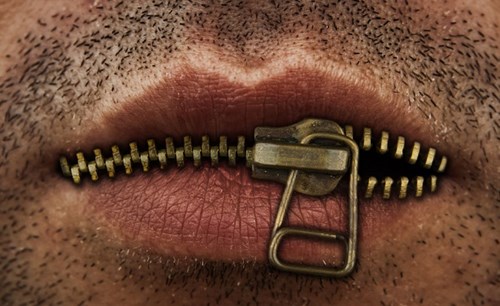Why Therapy for Men Is So Important
Date: Wednesday 02 Jun 2021
OK Guys, Let’s Talk:
A lot of men have trouble getting in touch with their emotional side. For thousands of years, they’ve been told that being a man involves being tough. To many, this means avoiding therapy like the plague, when it is, in fact, exactly what many men may need to build resilience. How do we best connect men with their emotions?
Wherever you sit on the gender spectrum, talking about your feelings can be very helpful, and you might feel loads better by opening up. When you avoid intimacy and sharing how you feel, it can make it difficult to recognize emotional problems.
Luckily, therapy can really help you get some perspective. It won’t be right for everyone, but more men than ever are recognizing the need for help and reaching out.

Why men avoid therapy
There seems to be something about traditional masculinity that stops men from reaching out.
In a 2017 meta-analysis of 19,453 participants, men who conformed to traditional masculine norms were much less likely to seek psychological help. But why does this happen?
You’ve all heard, “Boys don’t cry.” Or maybe you’ve even told a guy friend to “man up.” These statements may sound harmless, but they feed into the idea that seeking help is somehow unmanly. Resilience is an awesome trait to build, but it’s not exclusively masculine. And needing help to get there shouldn’t be a matter of shame for men, either.
Men avoid therapy because it’s not “alpha” to admit you don’t have the best life ever and go through your day smirking like Zac Efron at every major trauma or damaging life event. You’re allowed to feel sh*tty, and you’re double-allowed to seek help for it.
Look, even the mighty He-Man needed help from She-Ra to kick Skeletor’s ass. And he was the Master of the freakin’ Universe (and possessor of the most laughably masculine name of any fictional character).
The truth is, there are lots of ways to be a man because there are lots of ways to be a human. And it’s OK to ask for help when you’re struggling to cope.
Signs men should seek therapy
Depression and anxiety can have a massive impact on your health and well-being. It’s important to understand the signs so you know when to get help.
Depression
Depression can vary from person to person. But some general signs that you might be experiencing depression include:
- constantly feeling sad or low
- feeling completely hopeless
- low self-esteem
- crying a lot or being unable to stop crying
- feeling guilty for no reason
- irritability and isolating yourself away from others
- lack of motivation and not finding joy in life
- suicidal thoughts or thinking about harming yourself
It’s not just mental though. You can experience physical symptoms too:
- slow speech or movements
- loss of appetite and weight loss (or vice versa)
- serious lack of energy
- lower sex drive
- insomnia or changes in your sleep pattern
Anxiety
Like depression, anxiety isn’t a one-size-fits-all kinda thing. But common symptoms include:
- a feeling of restlessness, like you can’t sit still
- feeling overly nervous or anxious
- an overwhelming sense of dread
- constant worrying and feeling on edge
- difficulty concentrating
- irritability
- difficulty falling asleep because of worrying
Physical symptoms of anxiety can be equally distressing:
- muscle aches and feeling tense
- tremors
- twitches
- an extremely heavy or rapid heartbeat
- sweating
- shortness of breath
- stomach pain
- diarrhea
- extreme fatigue
- sleeping difficulties
Therapy and fatherhood
It’s fairly well-known that new Moms can struggle with post-partum depression — a specific form of depression that occurs soon after giving birth. But it looks like newly anointed dads can also struggle with depression. Post-partum depression in men can occur anytime in the first year of birth.
Symptoms can include:
- irritability
- restricted emotions
- other general signs of depression (see above)
Being a new parent is hard. Like, really hard. So don’t beat yourself up if you’re struggling to cope with such a big life event.
If you’re experiencing postpartum depression, therapy can be helpful in guiding you through that tough first year — it might work for some men, but not others. In peeps with severe depression, medication might also be necessary.
Everyone has different ways to cope. If talking works for you, that’s awesome! But you know yourself better than anyone. Do whatever works for you.

Does depression present differently in men than in women?
Differences in gender can cause additional difficulties for people experiencing depression.
In a 2013 analysis of data from a national mental health survey that compared the male experience of depression with that of females, males reported higher rates of:
- anger
- substance abuse
- risk-taking
The important thing is not to self-diagnose. A healthcare professional or mental health practitioner can help you find the right diagnosis. Don’t struggle in silence.
The link between male depression/anxiety and substance abuse
More than 50 percent of people with mental health disorders also experience some kind of substance use disorder. There’s clearly a strong link between the two, and it’s well-known that people turn to booze and drugs to cope.
But it appears that men are more likely to develop these crutches than women (according to the 2013 review we mentioned earlier).
Booze and drugs may give you temporary relief from your feelings. But in the long run, they’re only going to make things much worse, and they don’t relieve you from the need to be honest about your feelings. With the right support, you can get your life back on track. It just takes that first step.
Takeaway
Talking can be tough, especially if you’re a man. But getting in touch with your feelings can be really helpful for mental well-being.
Therapy can help you open up and recalibrate your life. There are loads of different options, so you can find what works best for you.
Whatever you’re struggling with, there’s always someone to help. Don’t suffer in silence.
Medically reviewed by Matthew Boland, PhD — Written by Liam McMillan

